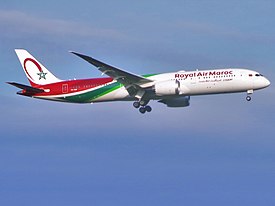
Spain plans to expel more illegal Moroccans as a result of its “historic” reconciliation with Rabat
Translation from InfoMigrants – Published on: 11/04/2022
Spain’s turnaround on the Western Sahara issue and its reconciliation with Morocco should allow the kingdom to expel more Moroccan migrants in an irregular situation. This should include the opening of two new air routes between the Canaries, Agadir and Casablanca.
During Spanish Prime Minister Pedro Sanchez’s visit to Morocco – the first since the kingdom’s U-turn on the Western Sahara issue – Madrid and Rabat welcomed a “new stage in their relationship”.
In exchange for its decision to show support for the Moroccan autonomy plan for Western Sahara, Madrid intends to ensure Morocco’s “cooperation” in controlling illegal immigration.
This should include intensifying the expulsion of illegal Moroccan migrants from the Canary Islands to Casablanca and Agadir through new air links, Spanish government sources told the Europa press agency.
According to these sources, the number of expulsions should “increase considerably” to reach figures higher than those existing before the Covid-19 pandemic. At that time, four weekly flights, operated by the Royal Air Maroc company, with 20 exiles on board, allowed Madrid to send back 80 people a week. The Moroccan migrants left from the Canary Islands, but had previously been arrested in other parts of Spain.
Resumption of deportations
After months of stoppage, repatriation flights of Moroccans in an irregular situation in Spain resumed on 22 March. They had officially been suspended since April 2021, for health reasons, but, beyond the pandemic, the tense relations between Spain and Morocco have also contributed to delaying the resumption of deportations.
In mid-March, Pedro Sanchez put an end to the feud between the two countries by announcing a change in Spain’s position on the Western Sahara issue. “Spain considers that the autonomy initiative presented in 2007 (by Morocco) is the most serious, realistic and credible basis for the resolution of this dispute” between Rabat and the Polisario Front independence fighters, the head of Spanish diplomacy José Manuel Albares also declared before the press in Barcelona.
In 2021, according to data from the European Border Surveillance System (Eurosur), quoted by El Pais, around 31% of the nearly 42,000 immigrants who arrived irregularly in Spain were Moroccan.
